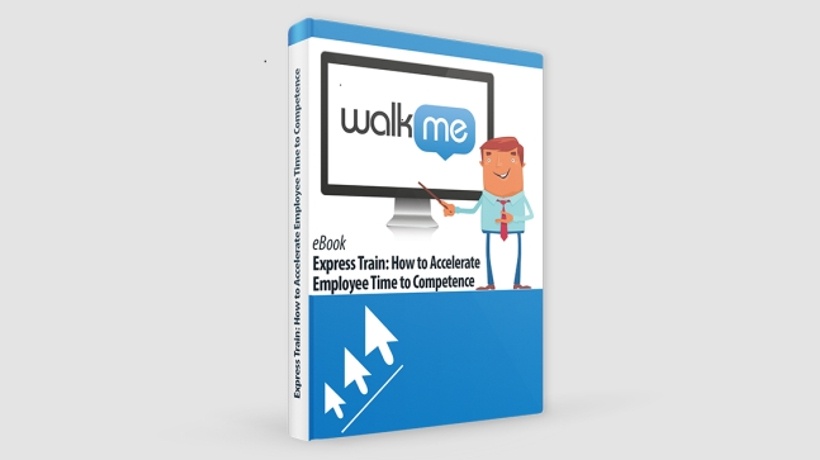A New eBook By WalkMe
Organizational Training Managers often struggle with the challenge of getting new employees to full levels of proficiency quickly, in a way that benefits senior management and reduces costs. In particular over the last 5 years, training has faced budget cuts, and with staff size reduced as well, senior managers cannot afford for their new employees (or veteran for that matter) to spend many days immersed in training, away from their required work. Furthermore, in a world of constantly changing technology, employee learning and development is perhaps more critical than ever before. So the challenge remains – how can training managers train employees quickly, but also in a way that gets them up to speed effectively, so they can work successfully and independently?
A new eBook by a company called WalkMe, a web-based software provider based out of San Francisco and Tel Aviv, examines ways for organizations to meet the training challenge. Titled Express Train: How to Accelerate Employee Time to Competence, the eBook (25 pages) provides a series of useful training techniques and strategies to apply to new employees.
What’s unique about the book is that it provides insight into the period during training and following the initial training sessions. It doesn’t take a side in the debate between formal training vs. performance support, but yet it includes best practices for both. For example, during the training stage, Jason Silberman, the book’s author and editor of Training Station, a blog on employee learning, talks about how to choose the most effective instructor as well as various ways to make training engaging and memorable, such as through use of learning games, videos, physical activity and learner collaboration. Following the training sessions, the book points out that the employee is an intermediate stage of sorts, in which he has now been exposed to key information but becomes fully proficient only through repetition and application of the knowledge learned in training to his required daily tasks. The book suggests the importance of close monitoring, feedback and the use of performance support technology during this period in order to compliment the training sessions themselves.
Among the topics addressed in the eBook:
- Formulating clear training objectives
- The importance of bi-directional manager-employee communication during the learning process
- How best to motivate employees on the importance of the training
- Engaging Training Techniques
- The role of technology in training and performance support
- And more
Overall, I would highly recommend giving this a read. A lot of valuable information, well-explained and articulated, that should help both training professionals, external learning consultants and line managers alike.
